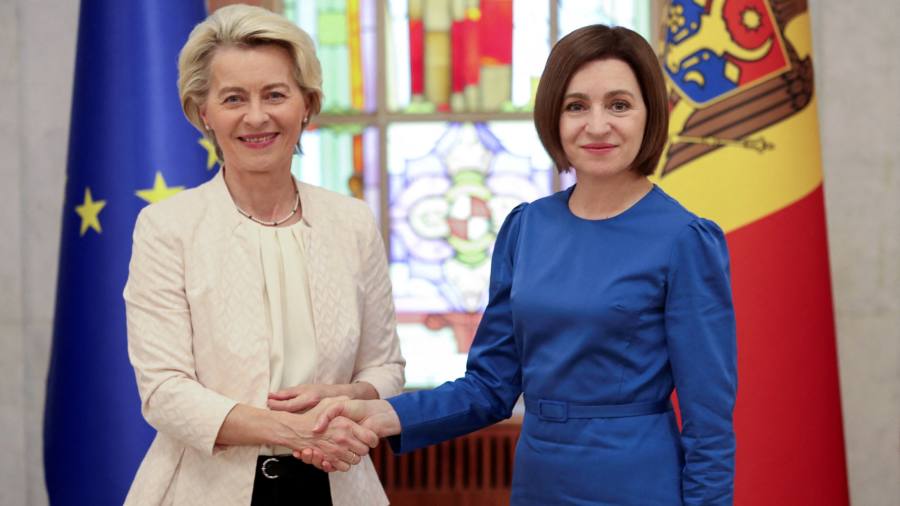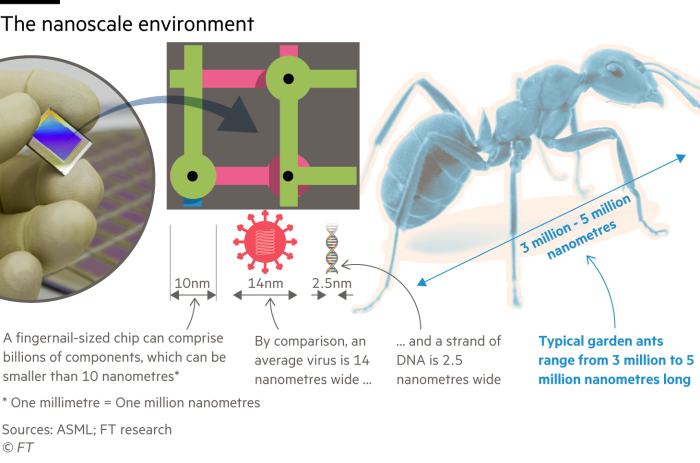
This article is an on-site version of our Europe Express newsletter. Sign up here to get the newsletter sent straight to your inbox every weekday and Saturday morning
Good morning from Chișinău, where close to 50 European leaders are preparing to gather for today’s European Political Community summit.
But a scoop to start: the EU is drawing up plans to implement a multiyear financial support package for Ukraine that would help Kyiv pay its bills and fund critical short-term reconstruction projects through to 2027.
Today, I explain what the EPC is all about and Laura takes you inside the race between EU states to secure for themselves the headquarters of the bloc’s new anti-money laundering quango.
Big-tent Europe
How do we define Europe? And does it matter? Both questions have become increasingly pressing in the context of Russia’s war against Ukraine, and today’s European Political Community summit is tasked with attempting to answer both.
Context: The brainchild of French president Emmanuel Macron, the EPC’s inaugural summit was in Prague last year as Europe was still reeling from the fallout from Russia’s invasion. Today’s second iteration in Moldova will seek to make the gathering of national leaders from Portugal to Azerbaijan, Iceland to Cyprus a permanent fixture.
For the hosts, membership of the EPC represents a place in Europe, regardless of location or political stripe. Only Russia and Belarus are outside.
“The presence of 50 European leaders, 50 heads of state or government right now in Moldova, in Chișinău, gives a very strong message,” said Ursula von der Leyen, president of the European Commission, yesterday. “Moldova is at the heart of Europe. Moldova is Europe. And today and tomorrow, the whole of Europe is Moldova.”
The EPC emerged on a crowded playing field, with existing bodies such as Nato, the EU and the Organization for Security and Co-operation in Europe often pushing for overlapping aims. But the new grouping’s pitch is that it can bring together all of Europe’s leaders regardless of democracy or dictatorship, Atlanticist or isolationist, under a (stretched) big tent that allows for informal conversation without formal structure.
That, its proponents argue, is critical given Russia’s war, and in making all countries feel a sense of togetherness as the continent comes under military threat. In that sense, the decision by recently re-elected Turkish president Recep Tayyip Erdoğan to skip the meeting has unsettled some governments, fearful of what message, if at all, he is trying to send.
“The EPC is about rejigging Europe’s state-order, less about concrete deliverables,” said Hans Kribbe, director of the Brussels Institute of Geopolitics, a think-tank. “The war has cut a new dividing line across the continent. Room for grey zones and neutral spaces ‘in between’ has evaporated. Who wants to be in the tent? Who stays out? This is the question that the gathering in Chișinău should answer.”
Chart du jour: Small is beautiful

Ever smaller transistors are being used to manufacture semiconductors to make them powerful. But chipmakers are starting to run into the fundamental limits of physics, prompting a search for other ways to make chips cheaper and more efficient.
Dirty laundry
European capitals are already lining up to host the new EU anti-money laundering authority, but the EU institutions have not yet agreed on how to pick a location, writes Laura Dubois.
Context: The EU member states and parliament are currently negotiating a package of new laws to fight money laundering, which includes setting up a dedicated agency to co-ordinate the fight against that financial crime.
Yesterday, Madrid became the latest city to throw its hat in the ring. One reason was “the strong tradition that Spain has in terms of anti-money laundering and also fighting the financing of terrorism”, Carlos Cuerpo, secretary-general of the Spanish treasury, said.
But Frankfurt, Dublin, Luxembourg, Paris, Vilnius and Riga are also among those keen to host the highly coveted new agency.
Until now, member states have decided among themselves where EU agencies should be located. But following a ruling by the European Court of Justice last year, the EU parliament will be involved for the first time.
“It’s going to be an open and transparent process and not just a black box decision behind closed doors,” said Eva Maria Poptcheva, one of the MEPs leading negotiations on the matter.
“It is an important authority,” Poptcheva added. “It is very obvious that the EU has had a very hands-off approach in the fight against money laundering.” AMLA [anti-money laundering authority] would be a “game changer” in this.
The parliament wants to hold hearings on the different cities, based on criteria such as whether the country has a good record on fighting money laundering, but also infrastructure and training opportunities.
But the criteria have not yet been agreed with the member states. According to EU diplomats, a procedure to pick a winner still needs to be found — and until then, the application process is not officially open yet.
What to watch today
-
Almost 50 national leaders attend a summit of the European Political Community in Moldova.
-
EU transport ministers meet in Luxembourg.
Now read these
Recommended newsletters for you
Britain after Brexit — Keep up to date with the latest developments as the UK economy adjusts to life outside the EU. Sign up here
Trade Secrets — A must-read on the changing face of international trade and globalisation. Sign up here
Are you enjoying Europe Express? Sign up here to have it delivered straight to your inbox every workday at 7am CET and on Saturdays at noon CET. Do tell us what you think, we love to hear from you: [email protected]. Keep up with the latest European stories @FT Europe